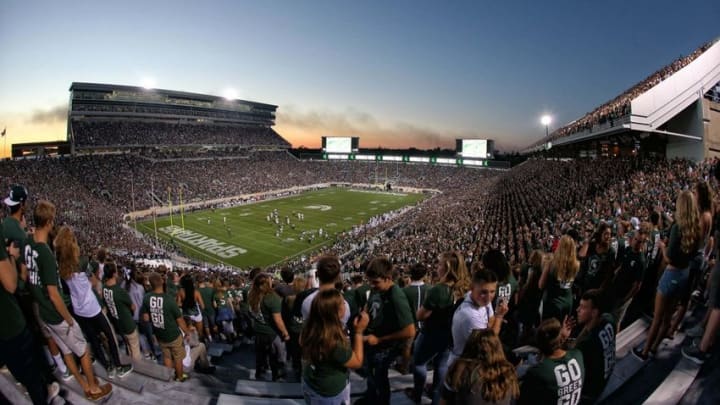
There are plenty of questions one can ask about the Michigan State-Notre Dame game of 1966. Did an underlying culture of racism play into the Spartans getting the short end of the stick in the polls? Maybe.
Would Michigan State have won if overtime was not still 30 years off in college football? It’s possible.
Did Notre Dame simply overwhelm the pollsters by blowing out a top-ten Southern California team a week later? Probably.
Was Asa Parseghian justified in his decision to run out the clock to end the “Game of the Century” in an ultimately unsatisfying draw? Absolutely.
If the object of the game is to win, Parseghian fulfilled his duty to the game, as his decision ensured that the Irish would retain their chance to win a national title, which they did. As frustrating as the result was for Michigan State, Parseghian broke no rules and cheated no opponent by making the decision he did.
Parseghian would eventually get to coach in bowl games, as Notre Dame opted to participate beginning in 1969. He won three of them and another national championship in 1973. Still, his most enduring legacy outside of South Bend is making a tactical decision which eventually won him a national championship.
93-year old Parseghian has watched college football change quite a bit since his days. Overtime breaks ties. There’s a playoff now which decides, perhaps more fairly, who the national champion is.
“I championed a playoff,” he says. “I was one of the few coaches who was hollering for a playoff. The bowl games dominated in those days, and you had to come up with some logical reasoning to drop them. Now they’ve got a format and a good foothold on a champion at the end of the seasons. I would love to be a part of that.”
He still watches Notre Dame football, although he admits he can’t jump up and down anymore, and spends most of his time raising awareness and seeking a cure for Niemann-Pick disease, which three of his grandchildren lost their lives to.
“Neither Duffy Daugherty nor I expected a tie or wanted a tie,” Parseghian has said. “The game ended in a tie in one of the historic games.”
For 59 minutes and 55 seconds, the two teams battled. Parseghian even risked it all by going for it on fourth and one in his own territory with 30 seconds left, something many forget.
Next: Should Detroit Lions Veil Of Secrecy Trouble Fans?
One Spartan player wrote a poem about the game, titled “The Never Ending Game.” It sounds nice, but it’s not true. The game is over, has been for 50 years, and ultimately old Notre Dame won over all.
